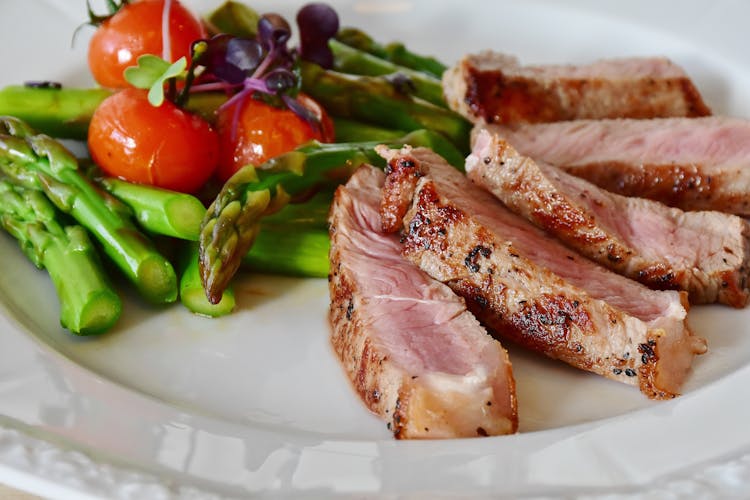Table of Contents
TLDR Summary
- 🍽️ Emphasize balanced meal planning for nutritious choices.
- 🧘♂️ Adopt mindful eating habits to foster connection with food.
- 🥗 Incorporate healthy recipes to maintain diverse meal options.
- 🙏 Express gratitude and appreciate the journey of your food.
In today’s fast-paced world, mindful eating serves as a beacon of intentional living. As the focus shifts towards healthier eating habits, readers are increasingly seeking methods to create balanced, nutritious meal plans that not only nourish the body but also honor a deeper connection to the food they consume. By incorporating mindful principles into meal planning, individuals can enhance their well-being and cultivate a positive relationship with food.
Mindful Meal Strategies for Health and Happiness
Effective meal planning strategies are essential for those aiming to align their eating habits with the principles of mindfulness. One of the most critical steps is to start with a shopping list. Prepare a list of meals you intend to make for the week and base your shopping on that. This not only streamlines your grocery shopping but also minimizes impulse purchases that might compromise your nutritional goals. By focusing on the produce section, where majority of fresh fruits and vegetables are located, you can avoid the processed foods typically found in the center aisles of the grocery store. Choosing whole foods as the foundation of your meals can lead to healthier eating overall.
Another significant aspect of mindful eating involves approaching meal times with an intention to appreciate the food. When it's time to eat, ensure you're not ravenously hungry—this can lead to unmindful overeating. Prepare balanced meals at regular intervals, and listen to your body’s hunger signals. Starting with smaller portions can also help; a smaller plate (nine inches or less) assists in realizing and respecting your hunger and satiety cues. This practice promotes moderation, allowing for seconds if you're still hungry, while also highlighting the importance of mindful consumption.
Reconnecting with Your Food through Sensory Experiences
Mindful eating also emphasizes engaging fully with the sensory aspects of food. Before indulging in a meal, spend a moment in quiet reflection about where the food comes from, how it was produced, and the people involved in its journey to your plate. This contemplation can cultivate a sense of gratitude, deepening your appreciation for the meal. Try to pause and express thanks, connecting with the nourishment that food provides. You may find joy in how it tastes, the colors it presents, and the smell that wafts through your kitchen.
Engaging your senses during the preparation and consumption of meals adds depth to the experience. Pay attention to the vibrant colors of the food, the various textures, the enticing aromas, and the sounds of cooking. This not only enhances the culinary experience but allows for a deeper connection to your meal and reinforces the relationship with what you consume. Eating without distractions, such as television or smartphones, further allows you to listen to your body and make intuitive choices about how much to eat. For those looking for delicious and mindful meal recipes, consider resources such as Meal Prep for Weight Loss: Weekly Plans and Recipes to Lose Weight the Healthy Way or The Skinnytaste Ultimate Meal Planner. These resources not only assist in planning meals but are great partners on your journey towards mindful eating.
Fostering Connection through Shared Meals
A mindful kitchen is one that promotes aware eating habits. Set aside specific times for meals and try to eat with family and friends, which can help you create a more intentional atmosphere around dining. Sharing a meal encourages discussions about food origins and shared values, fostering a more robust relationship not only with the food but with those you're sharing it with. Being part of a communal meal designates eating as a social experience, reducing mindless munching and insisting upon a more conscious act of nourishing the body. Such interactions can also lead to experimentation with healthy recipes, encouraging everyone involved to contribute ideas and thoughts about what would make for a nutritious gathering.
Moreover, as you integrate meal planning techniques, consider focusing on recipes featuring whole grains, fresh fruits, and vibrant vegetables. The practice of mindful eating can be interwoven into your daily life by introducing wholesome foods into your diet while nourishing inner awareness. To ease this process, books like The Healthy Meal Prep Cookbook: Easy and Wholesome Meals to Cook, Prep, Grab, and Go provide a variety of recipes that honor the principles of balanced nutrition without compromising on flavor.
What is mindful eating, and how can it benefit me?
How can I start incorporating mindful eating into my life?
By adopting these meal planning tips and embracing the philosophy of mindful eating, individuals can bridge the gap between nourishing their bodies and being consciously aware of their eating habits. The journey to mindful eating is not merely about the food on your plate but rather the relationship forged with it through intention, appreciation, and love.
As you embark on this journey, remember the importance of celebrating the process. Be playful with the foods you choose, appreciate the time spent in the kitchen, and engage in discussions with those around you to enhance your experience. Consider exploring various healthy recipes that will excite your palate while educating you on mindful consumption.
Key Takeaways
- 📅 Meal planning helps streamline healthier eating decisions.
- 🌟 Mindful practices enhance the eating experience.
- 🥙 Healthy recipes support a balanced diet and nutritional needs.
- 👐 A communal dining experience can deepen relationships.

Investigate important concepts here
Table of Contents
Latest Posts
Finding the Right Cleaner for Your Diamond Ring
Digital Detox Dangers: How Going Offline Can Harm Your Mental Wellbeing
Revive Your Ring's Brilliance a Complete Cleaning Guide
Navigation
Latest Posts
Finding the Right Cleaner for Your Diamond Ring
Digital Detox Dangers: How Going Offline Can Harm Your Mental Wellbeing
Revive Your Ring's Brilliance a Complete Cleaning Guide